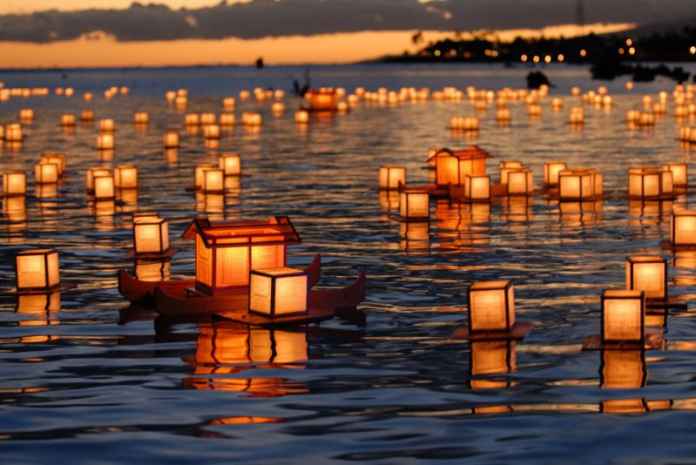Among the most important Japanese traditions is the Obon festival.Obon festival or ‘The Festival of Souls’ is an annual event for commemorating one’s ancestors, practiced in Japan.It is believed that
each year during Obon, the ancestors’ spirits return to this world to visit their relatives. The aim of the festival is to help ancestors’ spirits to find peace.
The origins of the Obon Festival can be traced to the story of Maha Maudgalyayana (Mokuren), a disciple of the Buddha. According to the myth, he discovered through his supernatural powers that his mother had fallen into the Realm of Hungry Ghosts and was suffering deeply.He sought help from Buddha, who instructed him to make offerings to the Buddhist monks who had just completed their summer retreat. These offerings had to be made on the fifteenth day of the seventh month.
The disciple followed Buddha’s instructions and thus saw his mother’s release. In sheer relief and happiness for his mother’s release he danced with joy. And it is from this dance of joy that the term comes, ‘Bon Odori’.
Traditionally, on the first day of Obon which is called muake-bon, chochin lanterns are lit inside houses. Graves are visited and food offerings are made at house altars and temples. People also go to their family’s grave to invite their ancestors’ spirits back home. Bon odori, a traditional Japanese folk dance is widely performed on Obon nights. The festival culminates on the last day called okuri-bon.
Obon festival is observed from the 13th – 15th day of the 7th month of the year. In fact, it is also one of Japan’s three major holiday seasons.
Thus, through the process of remembering the ancestors, in a way, Obon festival also serves as a reminder for the Japanese people to contemplate on their past deeds. Ultimately, it is not material satisfaction but spiritual contentment which is crucial to humans.













